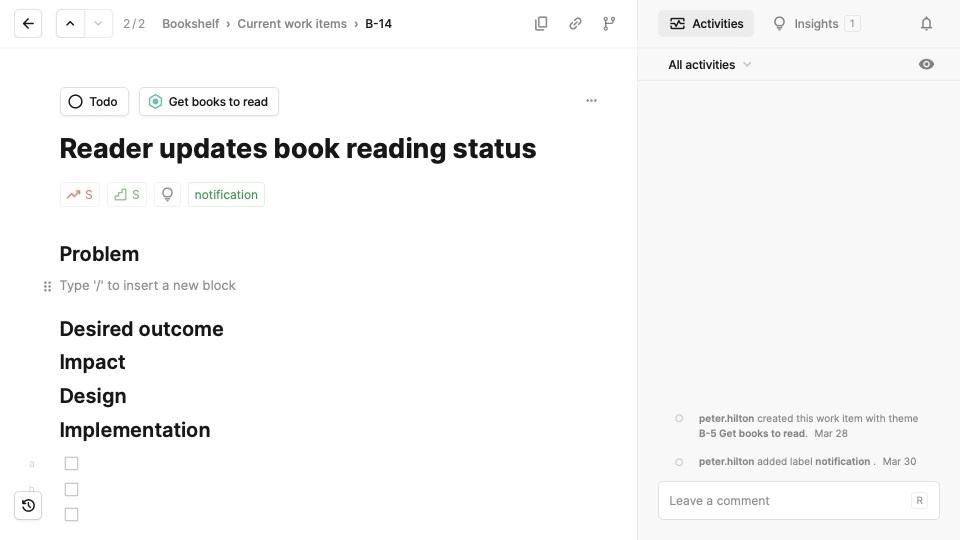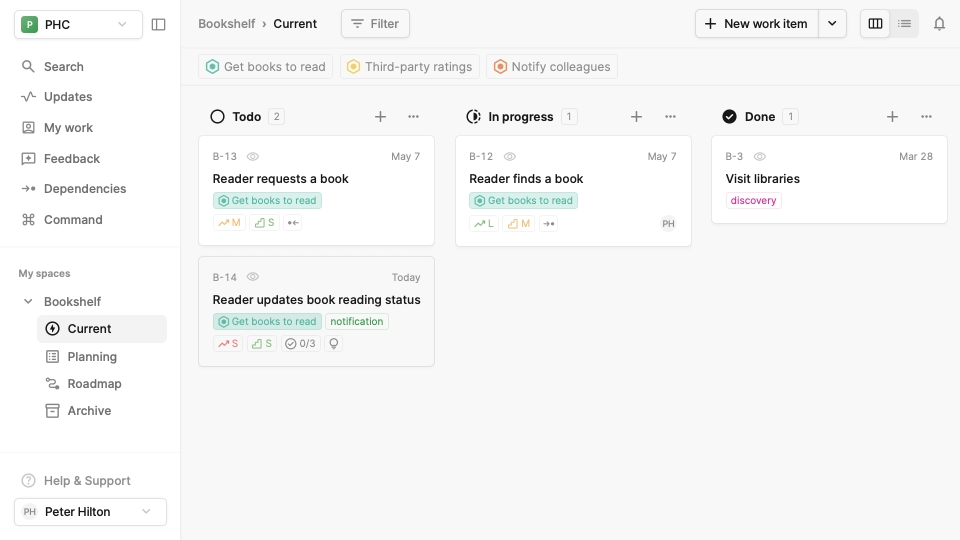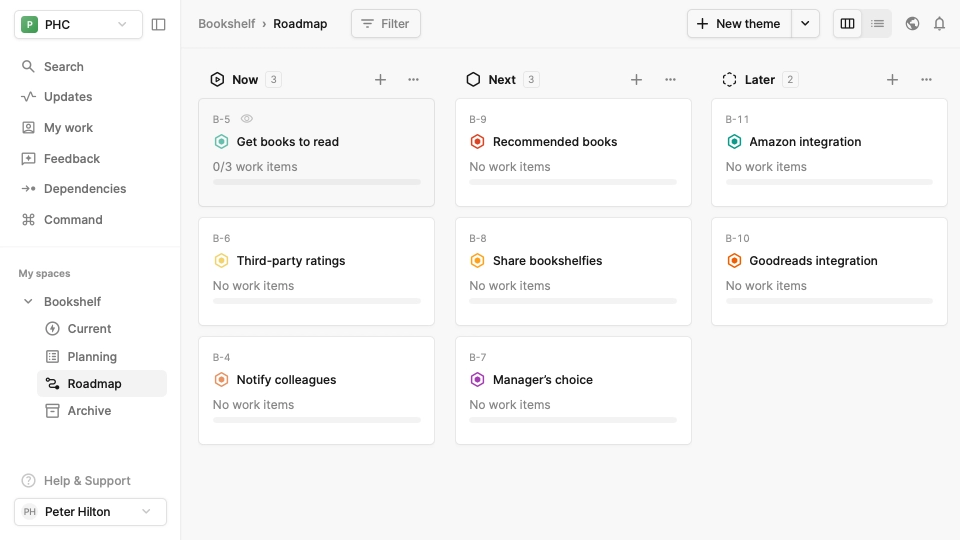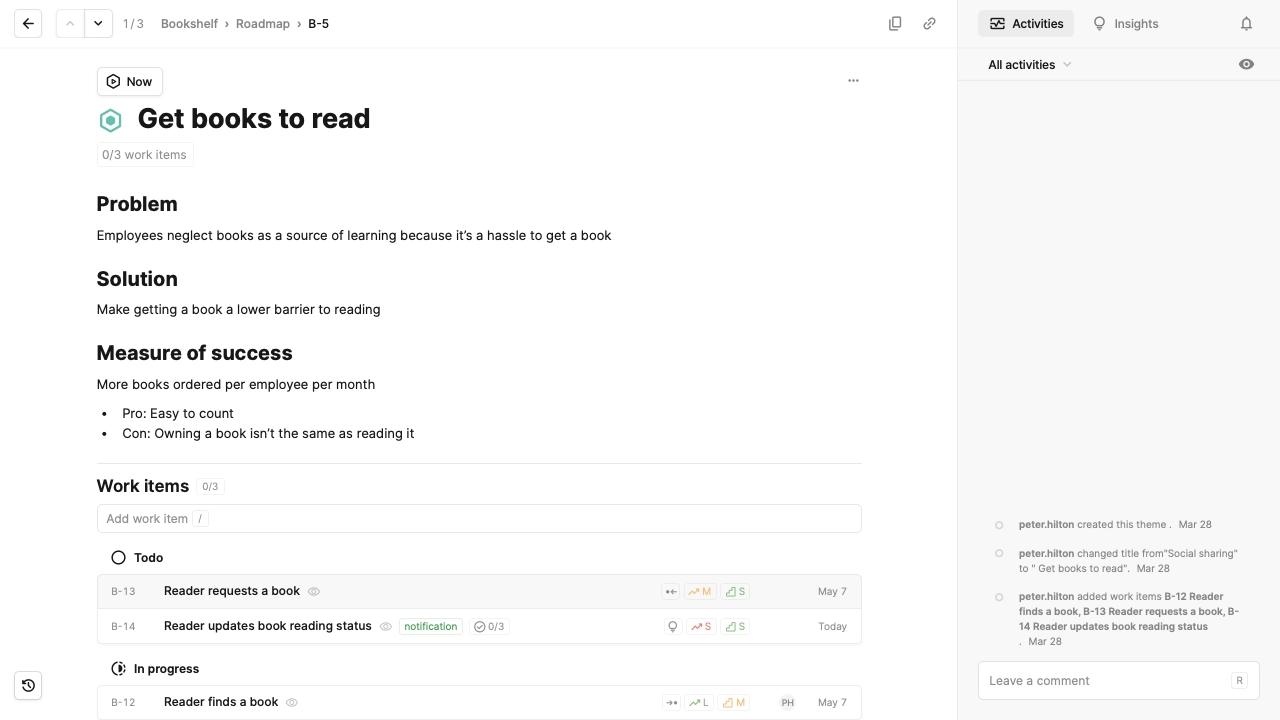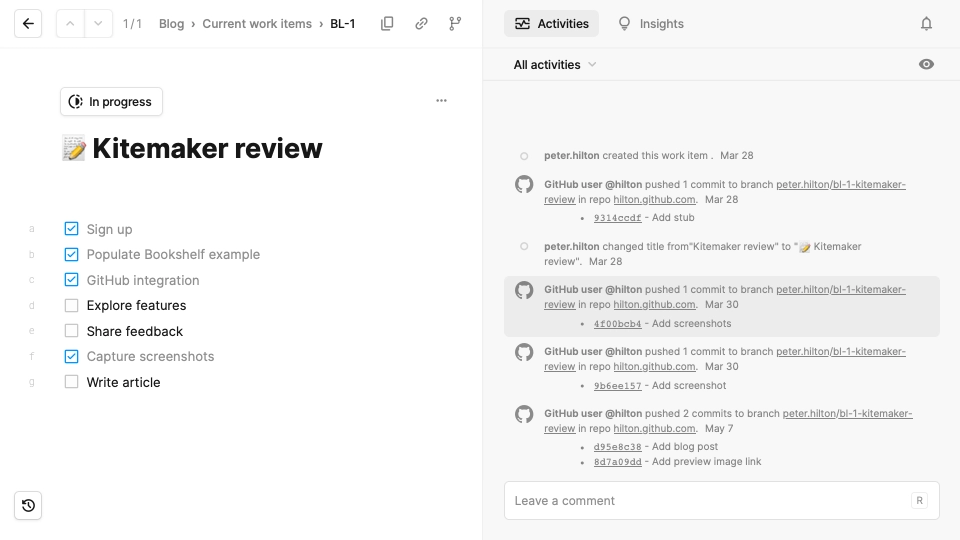B2B SaaS review: Kitemaker
Integrated product management instead of better project management 2023-08-15 #product #review
Kitemaker describes itself in its product documentation as:
A modern take on product development based on best-practices that replaces your issue trackers and project management tools.
As with other universal product development tools, this means expanding scope to support a cross-functional product development team; not only developers, designers or product managers in isolation. It also means simplification: a less complex tool than legacy project management tools, despite this increased scope.
Work items
Kitemaker structures content around work items, each of which gets its own Notion-style page, comments, activity feed, and version history. Task lists with checkboxes allow one work item to contain multiple implementation tasks.
The neutral term work item carefully avoids assuming that a software development team only works on tickets, bugs, or issues. Instead, you can use labels to categorise work.
You can also indicate impact and effort, and dependencies between work items, which appear on a separate dependency graph view.
Labels don’t support typed key-value metadata, so you can’t use this to create a board or table of customers, filtered by their manager, for example. That makes Kitemaker’s board and list views less flexible than Notion databases, which allow multiple custom views with saved filters. But this results in a simpler user experience than more generic tools.
Themes
Work items can belong to themes on a roadmap view - another board view:
You can use this for planning higher-level units of work than user stories and epics. For example, this Get books to read roadmap objective links to short-term work items, listed bottom-left:
Kitemaker’s approach means you can simplify product work organisation to themes and user stories.
Product feedback
Despite Kitemaker’s relative simplicity, its scope includes product discovery work. You can use the Feedback section to track customer-specific product feedback.
You can link a feedback item to a customer, assign owners to process it, labels to categorise it, and then link it to work items that address it. As in other tools, you can select text content to link to a work item, for when a customer meeting write-up or an email covers more than topic.
Version control integration
GitHub and GitLab integration makes it possible to simplify development work organisation, by linking user stories directly to commits. This means you don’t have to use a separate issue tracker or even pull/merge requests if you don’t need them. Instead, Kitemaker includes commits in the corresponding work item’s activity feed.
This brings a welcome change from tools that sync their epics or user stories and Jira, forcing you to use a more complicated tool in addition, so that developers can track tasks that link to code changes. Version control integration makes Kitemaker the first strong challenger to GitHub Projects for years, which in turn was the first strong alternative to Jira in 2016.
Developers will also appreciate the total keyboard control. And dark mode, obviously.
Integrated product management
Kitemaker promises integrated product management instead of better project management, and delivers through simplicity and flexibility, and a great user experience. Despite insufficient breadth to replace a general-purpose intranet collaboration tool, like Notion or Qatalog, a product development team might do nearly all their work in Kitemaker, using it as a universal product development tool.
